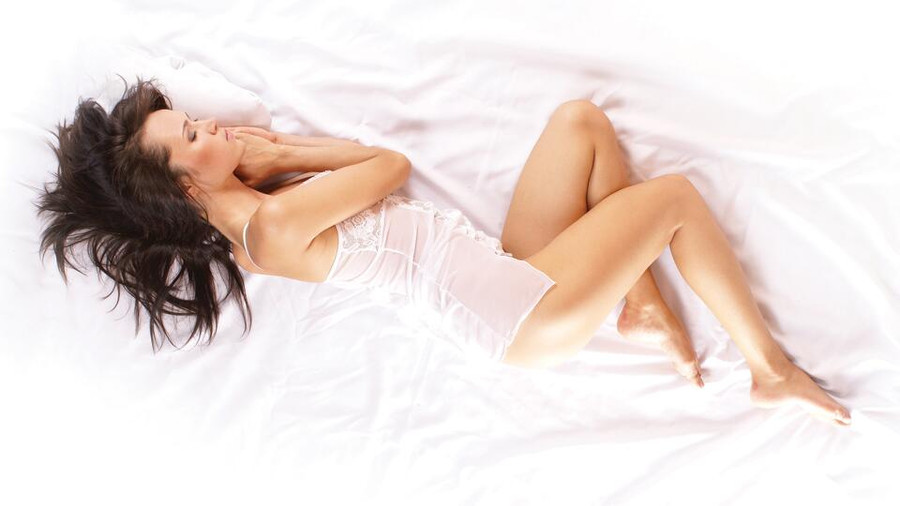You never know what you got, til it’s gone. Since becoming a father, this is more true than ever regarding my sleep. While it’s often a source of bragging rights to entrepreneurs, there’s really nothing great about “burning the candle at both ends” or working 16 to 20 hours a day. Trust me, I’ve been there. In surveys, the overwhelming majority of CEOs work long hours and sleep fewer than the average. While I admit a big part of that was burying myself in work to avoid the troubles in my failing marriage, I too thought that working more hours equated to more success. It doesn’t. Working smarter and doing the things that matter equates more commonly with success than simply increasing your volume, at the sacrifice of family, friends and your life in general. Sleeping less is linked to premature aging, higher levels of stress, impairments in judgment, concentration, memory and a slew of other health conditions. Of course, we can’t forget the most dreaded drawback — pillow hair.
The great thing about never having worked for anyone else in my entire life (always an entrepreneur at heart) is the total freedom to make your own schedule and rules. Sleeping (and waking) without an alarm clock was something that I cherished. That is, until my alarm clock became a crying baby and that alarm went off many times a night. The era of go-to-bed-whenever and wake-up-whenever was truly over. This is not most people’s situation, however. According to a European study cited in Fortune magazine last year, the average worker contributes to $411 billion in lost productivity from sleep deprivation.
In my many years of trying to achieve peak efficiency, sleep has been one of the most important factors. It takes up a third of our lives and there is large potential for savings there, making it a prime target for life hacking.
In my many years of trying to achieve peak efficiency, sleep has been one of the most important factors. It takes up a third of our lives and there is large potential for savings there, making it a prime target for life hacking. A bad night’s sleep is detrimental not just to the following day, but according to a military study, one poor night’s sleep can affect you for up to the next four days. This means, if you are sleeping poorly once or twice a week, you’re chronically unrested. Conversely, a study from 2011 suggested you could actually improve your performance by 10 percent by increasing your sleep to 10 hours.
Today, there is an abundance of sleep trackers conveniently available through companies like Fitbit who sell fitness trackers, but it wasn’t always this way. Years ago, a company called MyZeo marketed a product that sat by your bed, came with a stylish headband that measured brain activity and would wake you when you were most ready to be awakened. It sold for a few hundred dollars and I gave it a shot and it worked great. While it had a fallback alarm when you absolutely had to be up, I was most often woken up before that ever went off. This brings me to the most important aspect of effective sleep — get up when you wake up. Going back to sleep only makes things worse. A recent study showed that sleep is only significantly beneficial if it’s 90 minutes or more, so that extra five or 10 minutes you get from hitting the snooze button is not doing much. It’s likely I would still be using MyZeo today, if the company had not been acquired and the product shuttered, but thankfully other products have joined the market.
Rising early and without feeling groggy is helped by natural light. Phillips has a light alarm (although, it wasn’t that effective in my tests) but leaving the blinds open so the sunrise shines through naturally worked better for awakening gradually. On the other end of the spectrum, I hypothesized that getting better sleep would be correlated with a darker room. This was tested by blacking out my bedroom, which worked fantastically for helping me sleep (and it was super effective for power naps). The only problem was, it was much harder to wake up without the occurrence of natural light and it wreaked havoc on my circadian rhythm. I ditched the experiment after only a few weeks. Studies now show that similarly boosting blue-toned (or daylight) in office settings can boost your alertness and productivity.
The most common hacks for improving your sleep include adjusting your lighting and doing more calming activities late at night. Bright light and distractions can keep you awake. It seems our late-night mobile phone activities can keep us awake and personally, reading a book or magazine puts me right to sleep. Napping is helpful, but science suggests no more than 20 minutes at a time, to avoid affecting nighttime cycles. Sometimes, when I get tired in the afternoon, I’ll take some caffeine and lie down for a nap, when I wake up I’m ready to go; caffeine takes between 20 and 60 minutes to take effect.
Above all, it seems important to pay attention to your personal body cycles —some people are built for late nights, and others are more suited to rising early. This is a big reason I avoid morning meetings, conference calls (and pretty much everything else) in the morning. Adjust your porn consumption habits accordingly.
Juicy Jay is the CEO and founder of JuicyAds, the Sexy Advertising Network. You can follow Jay on Twitter @juicyads, visit JuicyAds.com or like on Facebook.com/juicyads.






